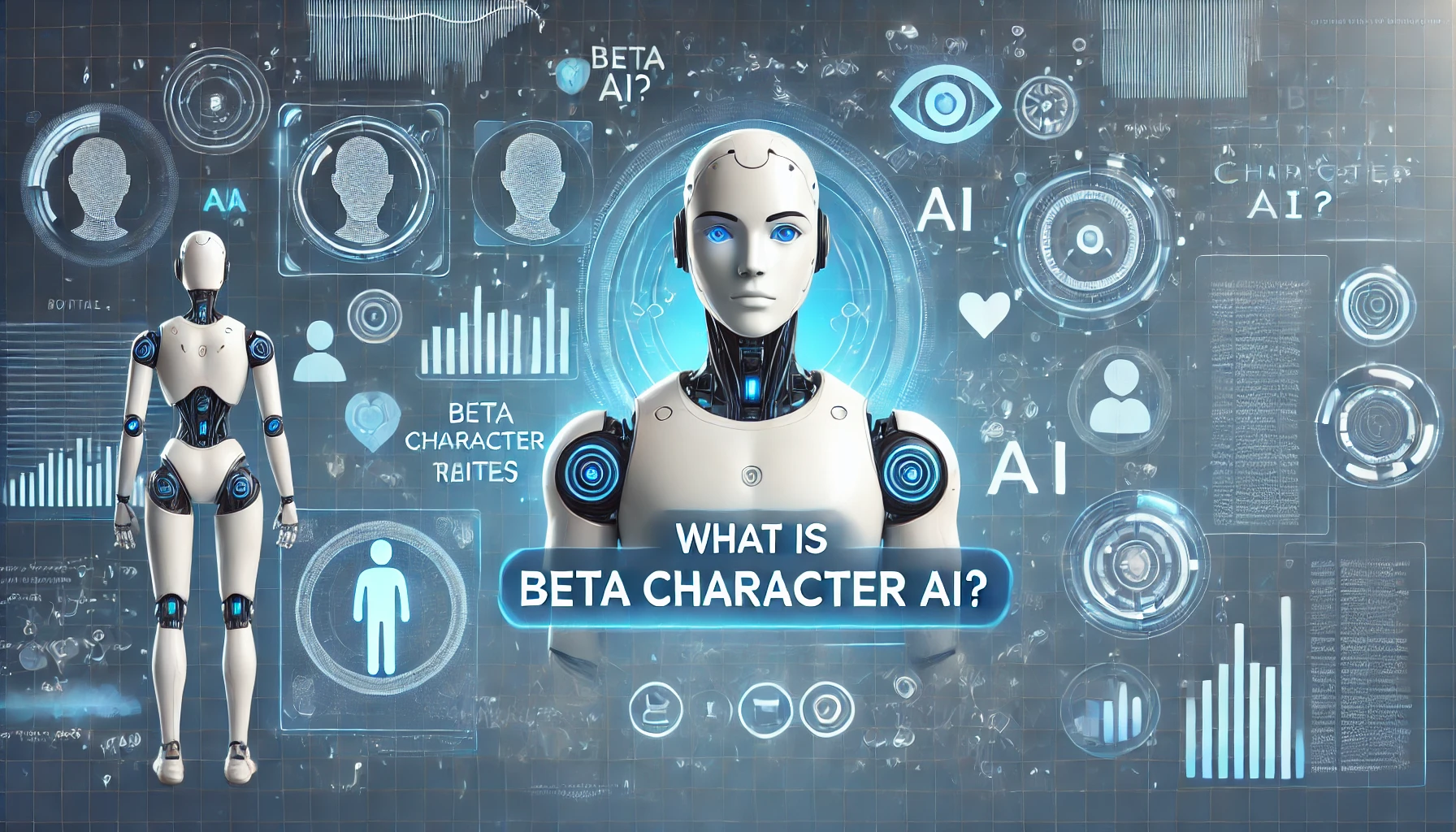
Unveiling Beta Character AI: The Next Revolution in Digital Interactions
Introduction
Artificial Intelligence beta character ai continues to redefine the boundaries of technology and human interaction. Among the various iterations and developments, Beta Character AI emerges as a groundbreaking advancement. Unlike its predecessors, Beta Character AI focuses on dynamic interactions, learning from experiences similar to human behavior, and adapting over time without extensive programming. This article explores the essence of Beta Character AI, its evolution, characteristics, impacts on various sectors, and the ethical implications associated with its widespread adoption.
The Evolution of AI Characters: From Alpha to Beta
AI has evolved significantly from its initial algorithms and simple tasks to more complex decision-making capabilities. The journey from Alpha AI, which typically involves rule-based engines that require manual updates, to Beta Character AI marks a significant shift. Beta AI integrates machine learning and neural networks, allowing it to learn and evolve based on data input and real-world interactions. This transition highlights a move from static to dynamic AI systems, where Beta AI characters can understand context, make decisions, and learn from their outcomes, leading to more natural interactions in various applications.
The distinction between Alpha and Beta AI is particularly evident in their application. Alpha AI often fails in unpredicted scenarios due to its limited programming, whereas Beta AI excels in these areas due to its adaptive learning capabilities. For instance, in customer service, a Beta AI can interpret customer emotions and respond appropriately, improving over time to handle a broader range of queries more effectively. This capability is not just a technical upgrade but a revolution in how AI can serve as a practical tool in everyday human activities.
Characteristics and Capabilities of Beta Character AI

Beta Character AI is distinguished by its sophisticated learning algorithms that enable it to perform tasks that require emotional intelligence and contextual understanding. These AI characters are designed to mimic human cognitive functions more closely than ever before, adapting their responses based on the interaction history and external data. This makes them incredibly versatile and capable of handling complex and nuanced tasks across various industries.
In gaming, Beta AI characters provide gamers with more realistic and engaging experiences. These AI-powered characters can react to player actions in a human-like manner, leading to more immersive gameplay. In customer service, Beta AI can manage and personalize customer interactions more effectively, learning from each encounter to improve its responses. The ability to process and analyze vast amounts of data in real-time allows these AI systems to offer solutions that are not only accurate but also contextually relevant, enhancing customer satisfaction and efficiency.
The Impact of Beta Character AI on Various Industries
The integration of Beta Character AI into various sectors has led to significant improvements in efficiency, user experience, and cost-effectiveness. In healthcare, for example, Beta AI can assist in patient management by interpreting patient data, suggesting treatments, and monitoring health conditions through virtual assistant platforms. This not only streamlines administrative tasks but also enhances the quality of care by providing constant support and monitoring.
Moreover, the entertainment industry has seen transformative changes with the adoption of Beta AI. Filmmakers and video game developers use Beta AI to create complex characters that interact with audiences or players in ways that deeply personalize the experience. This capability extends to educational technology, where AI tutors can adapt their teaching methods to the learning styles and needs of individual students, thereby optimizing learning outcomes and engagement.
Ethical Considerations and Challenges
Despite the benefits, the deployment of Beta Character AI raises significant ethical concerns. The autonomy of AI systems, coupled with their ability to learn independently, poses new challenges in terms of privacy, security, and control. There is also the risk of bias in AI behaviors, which can stem from biased training data or algorithms, leading to unethical decision-making processes.
Regulatory frameworks are still catching up with these advancements, and there is a pressing need for clear guidelines that govern AI development and use, especially concerning data handling, AI behavior transparency, and accountability. Addressing these challenges is crucial for ensuring that Beta AI technologies are developed and deployed in a manner that respects user privacy and promotes trust and safety.
Conclusion
Beta Character AI represents a significant leap forward in the field of artificial intelligence. By bridging the gap between human-like understanding and machine efficiency, Beta AI has the potential to revolutionize industries and enhance daily life. However, as we embrace these advanced technologies, it is imperative to balance innovation with ethical considerations to ensure that AI development benefits society as a whole.
FAQs
What is Beta Character AI?
Beta Character AI refers to the next generation of AI systems that are capable of learning, adapting, and making decisions in a manner that mimics human intelligence more closely than traditional AI.
How does Beta AI differ from previous AI models?
Unlike earlier AI models that require explicit programming for each function, Beta AI uses machine learning to evolve and adapt based on interactions and data, making it more dynamic and versatile.
In which industries can Beta Character AI be most effective?
Beta Character AI has significant applications across various sectors, including healthcare, customer service, entertainment, education, and more, due to its adaptability and learning capabilities.
What are the primary ethical concerns associated with Beta Character AI?
Ethical concerns include privacy, data security, potential biases in AI decision-making, and the need for regulatory frameworks to manage these issues effectively.
How can developers ensure the safety and privacy of users interacting with Beta AI?
Developers must incorporate robust data protection measures, transparency in AI operations, and adhere to ethical guidelines and standards that prevent misuse and protect user interests.
You May Also Read:https://theblookets.com/technology/




